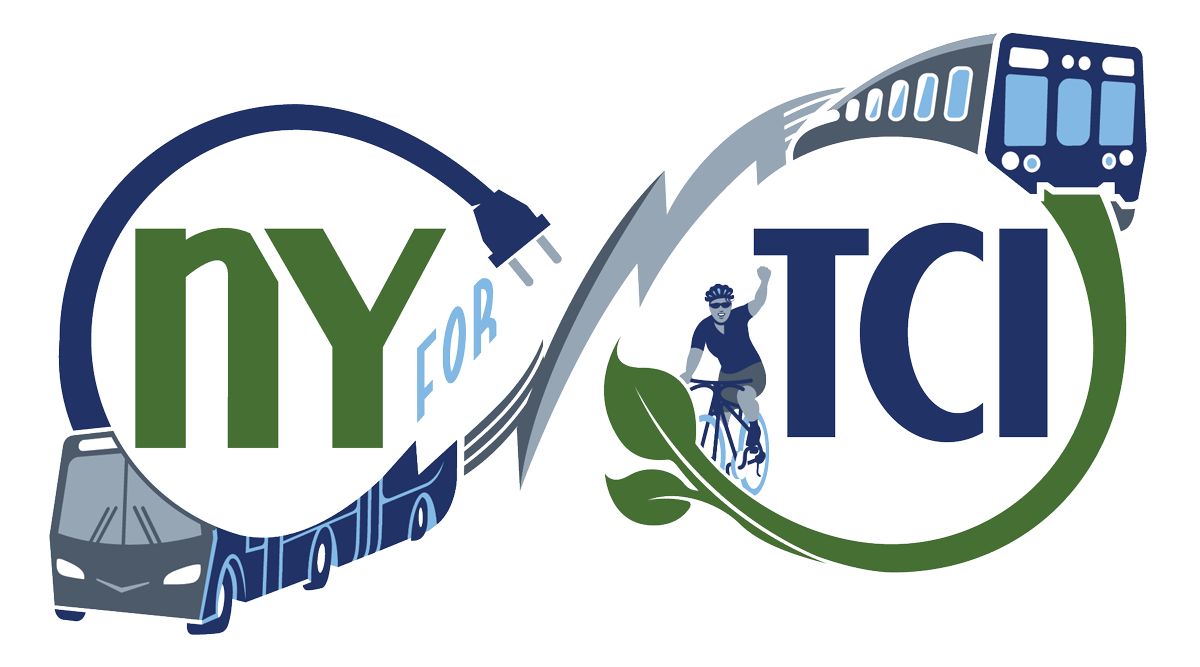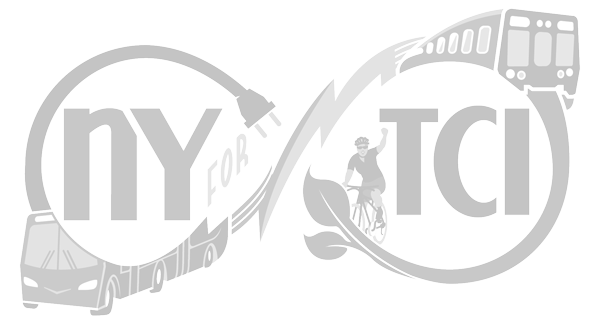Full letter below:
Dear Governor Hochul,
Thank you for making the climate crisis a top priority for your new Administration. We applaud your many Climate Week announcements last month, and we appreciate that one of your very first actions as Governor was aimed at reducing transportation pollution by signing the 100% Zero Emission Vehicles by 2035 legislation. To build upon these early achievements, we urge you to seize upon a once in a generation opportunity to transform New York’s transportation to make it healthier, more equitable, sustainable, affordable, and accessible by leading on the Transportation and Climate Initiative (TCI) program. Under the proposed TCI “cap-and-invest” program, New York and neighboring states would limit and reduce carbon pollution from transportation fuels and invest in our communities to provide better, cleaner, and safer transportation options.
While New York has participated in the development of TCI, your predecessor missed the opportunity last year to lead this critically important multi-state initiative to transform the transportation sector, both here in New York and across the region. By committing New York to TCI, you can correct that missed opportunity and accelerate our state’s economic recovery from the COVID-19 pandemic and build back stronger with good family-sustaining green jobs while protecting the long-term health and well-being of our communities.
This opportunity is also still ripe to be seized upon, as the TCI Model Rule was just finalized four months ago, and States are only beginning to move forward with implementation. Moreover, New York is uniquely positioned to still claim a leadership role in TCI because:
- we have the largest population and transportation sector in the region;
- we only need to adopt a regulation to implement TCI (whereas other States require legislation as well); and
- we have already enacted the CLCPA, which codifies many of the equity-focused commitments in the TCI Model Rule.
The Transportation Challenge
Our outdated networks of roads, bridges, sidewalks, transit systems, and other modes of travel are plagued by problems decades in the making. These problems include congestion, delays, underfunding, inaccessibility, high costs, and pollution that make getting to work, school, doctors’ offices, recreation, and stores stressful and unsafe.
Communities of color and low-income communities face inequitable pollution burdens exacerbated by vehicle traffic, particularly from diesel-burning vehicles as transit depots and freight hubs tend to be sited in these communities. Many of these same communities as well as people with disabilities, veterans, older residents, rural residents, and others too often face transportation barriers to healthcare, social services, and jobs.
COVID-19, which has disproportionately impacted residents in the same communities most overburdened by air pollution, further underscores the connection between air quality and poor health outcomes, as well as the need to act swiftly. In addition to being a major source of health damaging local air pollution, the transportation sector is also New York’s largest source of carbon pollution, driving climate harms and instability.
At a time when New York’s economy must recover and build for the future, these challenges threaten to hold us back.
The Transportation Solution
New York must do better. By playing a leadership role in TCI, we can improve our state’s transportation while helping achieve a strong and cohesive regional response to climate change. Through an equitable and sustainable regional TCI program we can:
- Provide better, more accessible, and more affordable transportation options across New York State that improve mobility, increase access to jobs, education, healthcare, and other services and opportunities.
- Invest in transformative transportation solutions that create good, family-sustaining jobs, grow our economy, and clean up our air, including investments in job-training, workforce development, and apprenticeship programs in clean transportation industries.
- Prioritize investments in environmental justice, low-income, and other disadvantaged communities from Day 1, working directly with residents of communities that have historically borne a disproportionate amount of transportation pollution and its associated health impacts to correct these injustices and craft investment plans that maximize benefits. Consistent with New York’s groundbreaking Climate Leadership and Community Protection Act (CLCPA), disadvantaged communities must be guaranteed at least 35 to 40 percent of the benefits from the state’s TCI program’s investments.
- Cut tailpipe pollution, the biggest source of carbon emissions and a major source of pollutants that cause asthma attacks, premature death, and other health harms.
- Leverage New York’s leadership by working with neighboring states to build a more efficient and effective regional transportation system that works better for residents and businesses across rural, urban, and suburban areas.
By requiring oil companies to cut and pay for the pollution they cause, the initiative could generate up to $1.4 billion per year for New York to help us build and deploy:
- Safe, convenient, reliable, and affordable public transportation, including in rural areas and for people with disabilities;
- Complete streets safe for walking, biking, and rolling;
- Modern and resilient infrastructure;
- Accessible transportation options that meet or exceed the standards of the Americans with Disabilities Act;
- Affordable, equitable housing near job and transit centers;
- Clean electric school buses, transit buses, cars, and trucks;
- Improved access to broadband to enable telecommuting, increase access to services, and help reduce the need to drive; and
- Other innovative transportation programs across New York State.
To achieve these outcomes, it is essential that New York lead the regional TCI implementation to ensure the program’s pollution cap is consistent with achieving the CLCPA’s mandates of net-zero greenhouse gas emissions by 2050 and guaranteed investments in disadvantaged communities. New York and its regional partners must also adopt strong safeguards and standards to ensure that the TCI program’s design and implementation, including investment decisions, advance equitable and sustainable transportation solutions. This includes commitments to enhanced, genuine outreach to disadvantaged communities on the design and implementation of the program; sustained tracking to ensure that local benefits, including pollution reductions, improved air quality, and job creation, are achieved; and continuous reporting, monitoring, transparency, and improvement to ensure the TCI program achieves equitable and sustainable outcomes.
We urge you to seize this opportunity by committing New York to the implementation of an ambitious equitable and sustainable regional TCI program that helps us build the transportation future New Yorkers want and need. We also urge you to continue to develop and implement other complementary state programs for equitable and sustainable transportation that will benefit New Yorkers and accelerate this important transformation.
Sincerely,
New Yorkers for the Transportation & Climate Initiative

